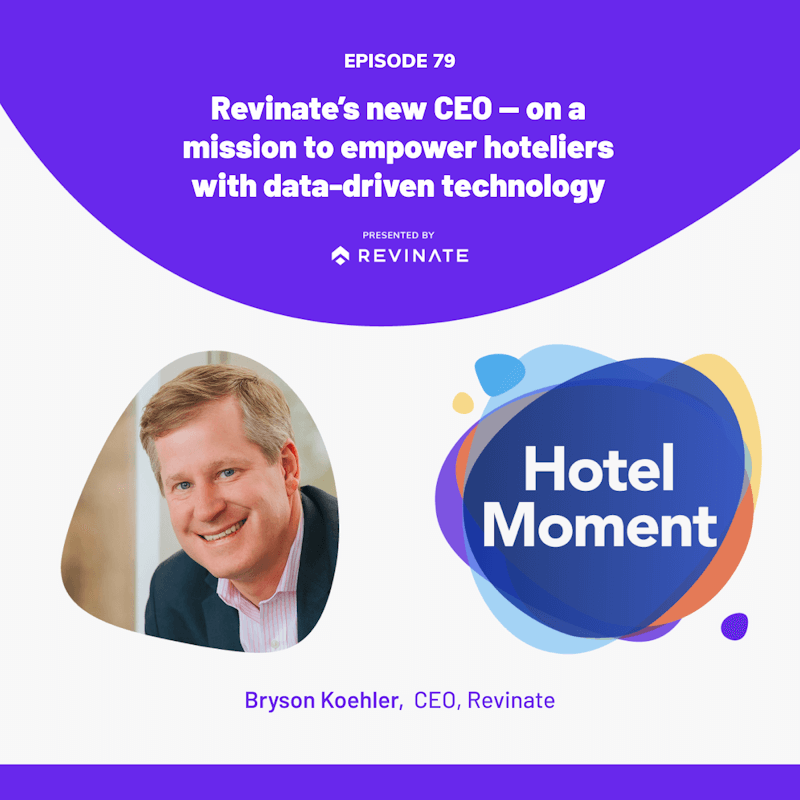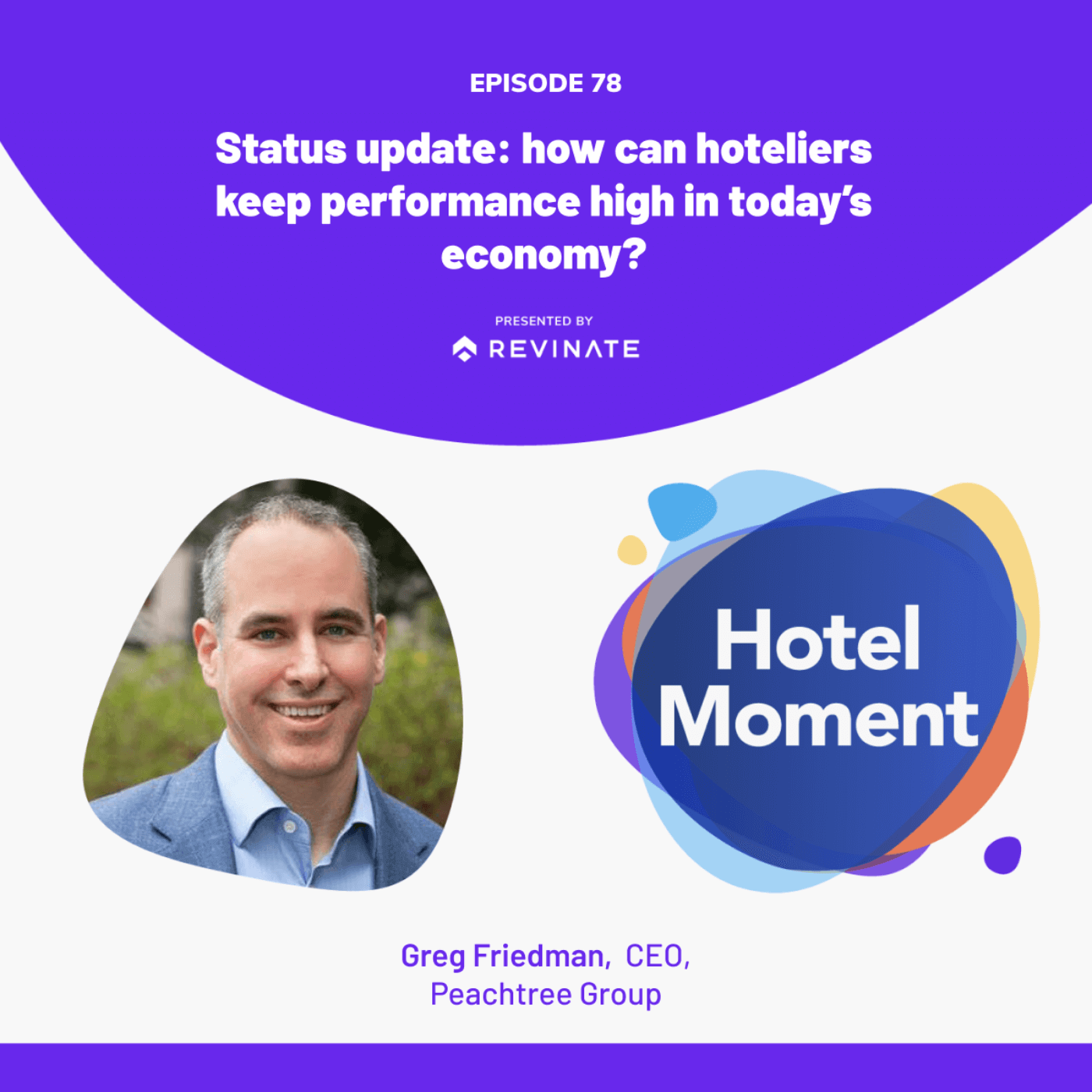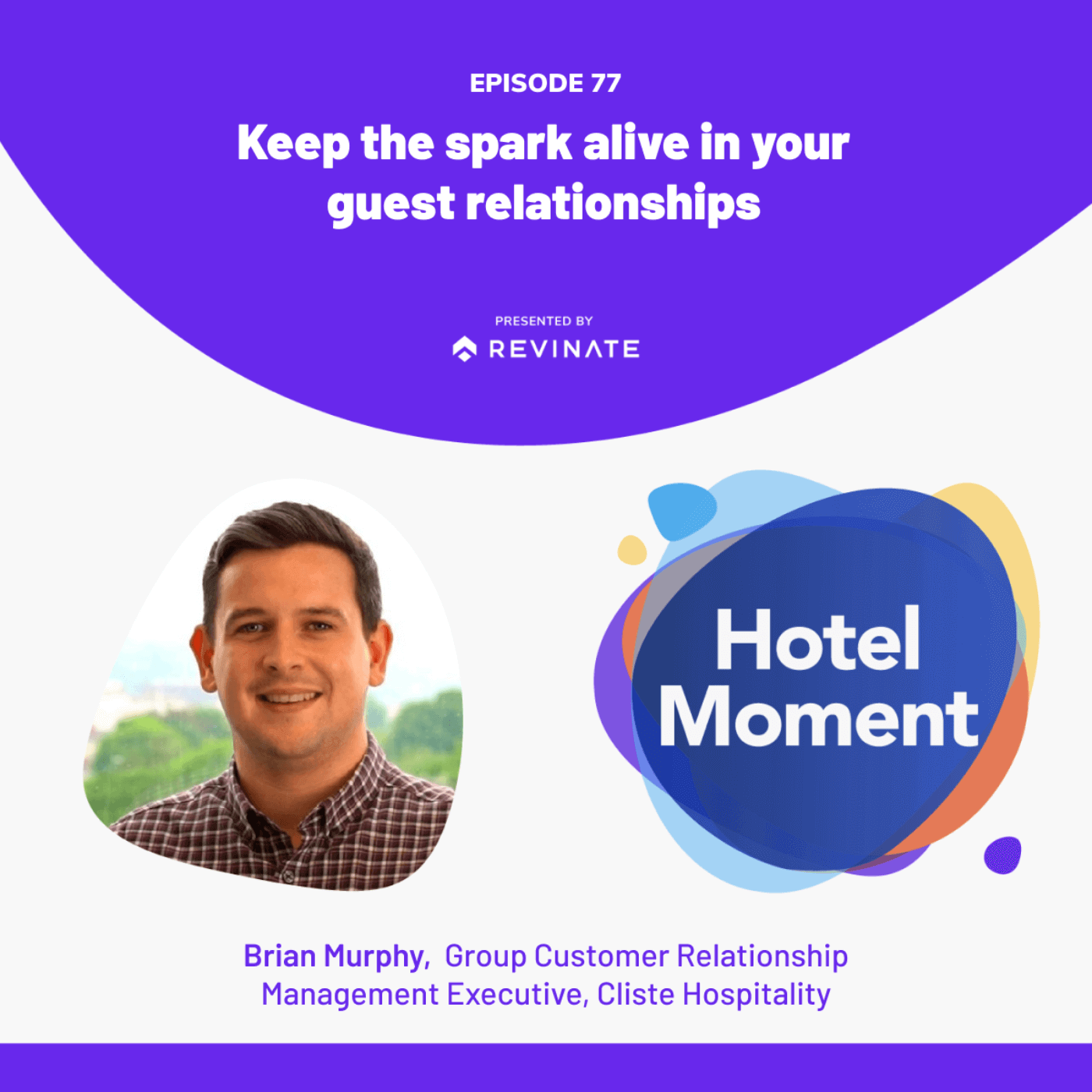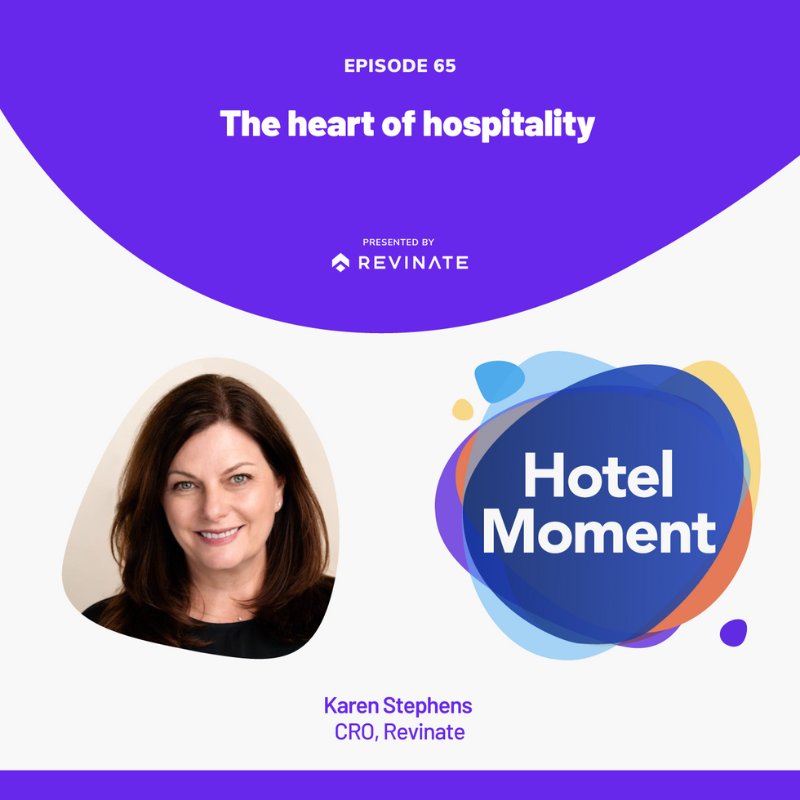

The Hotel Moment podcast — episode 65
The heart of hospitality
In this week’s episode of the Hotel Moment podcast, we’re peeling back the layers to get to the heart of what makes this industry special. You’ll hear about pivotal moments in the careers of past guests as they highlight instances of true leadership or life-changing interactions with guests. These stories remind us of the community that is the foundation of hospitality, working together to create amazing experiences for guests and the people who serve them.
Tune in and listen to encouraging perspectives that you can use to uplift your teams and improve your hotel operations.

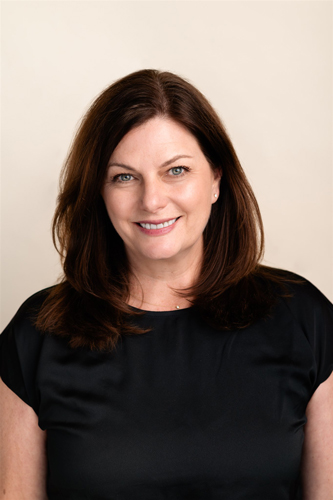
Meet your host
Karen Stephens is Revinate’s Chief Marketing Officer and runs the sales, marketing, and customer success teams. She has more than 20 years of experience in the industry alone.
On the Hotel Moment podcast, Karen speaks with leaders to draw out their experiences and insights. She is also a Francophile and Prof K — a coach, a mentor, a guide to the people who work with her.
Now Playing
Transcript
Karen Stephens: Hello everyone. Welcome to the Hotel Moment podcast. I am your host, Karen Stephens, the Chief Revenue Officer of Revinate. This week on the podcast, we are reliving the answers to one of my very favorite questions, which is, “What is the most uplifting moment so far in your career?”
Enjoy.
Noreen Henry: The things that impact me the most, that I go, “Oh, wow. That was a day that I’ll never forget.” It was actually, it was when we were with Travelocity and it was a travel partner conference that was in New Orleans.
And so we were one of the first ones after Katrina to come back to the city and figure out, “Hey, how do we help stimulate business again?” And one of the things we did was we did a volunteer day before the partner conference at one of the schools. And, uh, I think you were probably part of that.
Karen Stephens: I was there. Yeah.
Noreen Henry: We redid their whole playground. We, uh, we just did some amazing things to just renovate that school.
And the kids were gone on a field trip while we were doing this. And when they came back, their eyes were amazed. They had these new basketball courts and everything else. And so it was a very, very rewarding day. And we were doing that side-by-side with our partners. And so it was just a terrific way to connect with our partners.
I’ve been in hospitality for probably, I don’t know, 40 years or more. So that’s a tough one, but the uplifting was, oh, there’s been one or two. The, um, the day of 9/11, I was living in Orlando. And, um, it was just such a sad, shocking, heart-wrenching day that no one really could get their arms around. But all the hotel staff that I had at the Crowne Plaza and the Quality Suites that I was managing —I had actually just moved into academia — but all of those hotels that I had just managed, all the associates rallied around the other associates and did a big get together of love. And I think they even called it something silly, like Love Fest, but it was just for those two days when nobody could fly and nobody knew it was going on.
They went door-to-door and brought them all together and brought them to the hotel so that we would have some way to be happy together. So, it’s like, it wasn’t the best day in the world, by any stretch of anyone’s imagination, but it was so heartwarming with what they did that it really lifted me up.
And I guess the other one that comes to mind was I had, um, a boss when I was in high school, who many, many years later when he was in his 80s, reached out to me and said, “I always knew you’d be in hospitality for life. You told me, no. You told me you wanted to be a lawyer. And, and here I see you on LinkedIn and I see you on social media and I just get so touched when I can know who in my restaurants is really in it for the right reasons.”
And that just totally made me, you know, this business just re-energizes me a lot. But when John called me after all those years, I mean, I worked for him from the ages of maybe 15 to 18. So here I was in my 50s. So, it really, that really lifted me up and had a big impact. And I am in it for the right reasons. And I love, I love, working with people.
Matthijs Welle: Most uplifting moment. Ooh. It’s hard because there really are so many, like, it’s been an insane journey that we’ve gone through with Mews in the last few years. And, and it’s just what I love most is seeing our team members succeed and really do well. And we’ve got one of these one team members in our company that has been with me for, you know, my career at Hilton and now at Mews.
He landed recently in a role, and I can just see him thriving, and he’s just innovating. When I see someone who I know so well for so many years and see them having looked for the right role and then landing somewhere and doing so well, it, it truly warms my heart. And I think it’s moments like that, that are really special.
Paul Hitselberger: Wow, that’s a big. I’ve been doing, let’s see, 40 years most uplifting moment. Maybe it’s a broad answer, but when I see people who we’ve worked with achieve higher things in their lives. You know, at First Hospitality we have a program that’s called, and I don’t wanna get too deep into it, but it’s called, “Live Free, Drive Free”.
Our hourly associates have an opportunity to win either the rent or mortgage paid for a year, or the lease of a new car with insurance for a year. And when you see the impact that that has on people’s lives, it’s overwhelming. It, it’s a very emotional moment, and it’s probably in my 40 years, one of the greatest things, uh, that I’ve seen.
Rob Mangiarelli: So there, is a director of finance for Hyatt right now who works at the Hyatt Centric in Times Square. And when I first met her, I was the controller of the Hyatt Regency Greenwich, and she was an admin working in the engineering department, and she was looking for a new role. And I had an opening as, uh, income auditor. So I moved her into finance, or into our accounting department. And then I left Greenwich and I went to the corporate office, but watching her career grow year over year. And then she was named manager of the year, a couple years back, at the hotel. And her boss called me to tell me that she was a manager of the year, and to think about how her career had grown and where that all started.
I think that was probably, you know, one of those great moments of your career, just being able to look back at, uh, the people you’ve worked with and what they’ve been able to do.
Philip Bates: There’s a lot. Um, but one was pretty cool. We developed a hotel in Mexico and bringing my, uh, 2 sons to it was pretty cool.
They were kinda like, “oh this is where you’ve been going.” Like they, they, they just didn’t really, they’re younger. They’re kind of like, they’re, um, at the time they would’ve been 4 and 6, and so they, um,
Karen Stephens: Right.
Philip Bates: I would just disappear, you know, and they wouldn’t really know what I was doing. Um, and kind of having them walk around and like the staff, you know, give ’em special treats and things like that. And, uh, that was pretty cool. Um, but, you know, the business itself just lends itself to a lot of really rewarding moments because you’re always interacting with people, and you can make their days, you can make your employees’ days, you can make their holiday, you can make their, you know, family vacation.
Zachary Schwartz: I guess, um, along those same veins, and it came later on, a couple years later, uh, I don’t think I was 15 when it happened, but, uh, maybe in my early twenties and I had the opportunity to, to meet Mr. Marriott himself. Um, it was, uh, really an uplifting experience to see the big, the big boss. Um, a guy that cared enough to, to come around and visit all of his properties, and to meet the teams that, that ran those properties, um, and represented the company. In fact, on the day of his visit, the managing director of our property was, was sick. And so, I had the opportunity to, to lead the tour, um, again, I think it was 20, 22 years old and I was leading Mr. Marriott around the property. And, um, what really came through was the fact that, um, he didn’t treat me any differently than he would’ve the, the managing director. And so, that feeling of respect is something that, that stood with me for a long time.
Johnathan Capps: Probably where I’m at now. Um, and having, come through the industry a little bit and work with some people, I think it’s, you know, there’s a, there’s a few people I’ve I feel like worked with me, worked alongside of me that have come into their careers, come into their, even their personal lives. I’ve gotten connected to a few people, pretty close, you know, where we, they, you know, came up through an intern and, you know, a good example is, is an employee that was at a front desk that showed interest in, in revenue management years ago, worked his way through the desk came to the corporate office, went to get his MBA, did an internship with us, came home with us as a revenue manager, and now he is, you know, kind of taken that, was successful with us as a revenue person. And then the entrepreneurial spirit led him to start his own company. And he’s really successful with that.
So a couple examples are like that of people close to me, who I stay in touch with, of just seeing, you know, go on it, it, it’s definitely uplifting to me every time I’ll see a LinkedIn post by that person or how well they’re doing. I really like that.
Fabricio Titiro: I have asked myself this question many times, and I’m very grateful of the career that I have already enjoyed. I’ve been around 20 years now in hospitality tech, and a bit more in hospitality, in general. and to be honest, um, working with the customers that we are so lucky to serve in a company like Oracle hospitality for me has always been like a dream.
So, since day one until this day, so I have so many moments, where I felt, we are the pinnacle here with the customer, with working, for example, at, universities, having the opportunity to teach, to show, our technology, our, our industry knowledge at events. I have also had the pleasure at several times to work with companies like, like Apple, like Samsung- collaborate with, with companies like this.
I mean, not now, many years ago, when, when I think this felt even more exciting than now. And then also of course, working for an organization like Oracle is very challenging, but I really cannot go to one only because, it’s so many success stories that we have.
Right? And,
Karen Stephens: Right.
Fabricio Titiro: And I was lucky to take part on some of those.
Pete Sams: First thing that comes to mind is just the numerous opportunities that I get to interact with our team members. And I, I can think back even as a GM, being a GM at the hotel. And it’s amazing to me, and humbling, the value that your team members place on your time, and your effort and your, and your, commitment to them and to, to sit down and, and have a conversation, and to listen, and think about, um, you know, and help them, encourage them to contribute to, to the cause if you will. Right? How are we going be better?
And, and so I always think in general, I know that’s not 1 specific moment, but most of the time when I think about my career, what’s most rewarding is when you, you help someone see the value in what they do, you know? It lights them up when they think about it, and how much they, they value your time and, and energy.
So you know, I can think about rallying behind, you know, tragedy, different tragic circumstances that we experience in a hotel at different times, and how we pull together as a, as a unit to kind of help navigate, again, the challenges of those circumstances. I think from an accolade perspective, I remember, you know, one of my early GM assignments, I was the general manager of the Omni Richmond, and was selected as a GM of the year for our performance. And that was just such a source of pride, not really for me, but for our team. Um, it was a, a hotel that was underperforming upon arrival. And, and we had a lot of opportunities. And, the typical, um, you you know, the, the reputation of the hotel was that it was a tough labor market. There were lots of reasons why we couldn’t be successful allegedly. And, um, we forced a course and, and ended up, you know, leading the company in, in many of the key parameters to include team member engagement surveys, and, uh, ultimately received that accolade. But it was really a team award and just the, the amount of pride that, that everybody felt so early in my career that was critical.
Certainly, the appointment to, to lead this, this team here at Davidson with its storied history and the, and the incredible reputation that Davidson already had in this space as an incredible place to work, you know, the integrity. Our core values are, are so critical to us, and that was forged over what’s approaching a 50-year history for Davidson. So to be afforded the opportunity to represent this amazing company, um, as Chief Operating Officer, is something that is not lost on me. Um, it’s again, humbling. But again, I think we’ve, more than doubled in size in my 3 years. You know, we’re now 80 plus hotels and resorts. We launched a new vertical during my tenure in the resort space. Not that, that we didn’t already operate some resorts, but we had our 2 existing verticals, our hotel’s division. And then Pivot, which had been launched uh, in 2016–our lifestyle boutique, division if you will.
And then I had the privilege of putting together the, A-team that we have leading, the resorts division, which started with the, the hiring of Steve Contos, a tremendous resort veteran in the space. And just the talent that we’ve put around, each one of these verticals that understands the nuance of what it takes to operate in these spaces, but still foundationally embraces the core essentials of how we operate, what we call vertical agnostic playbook of Davidson DNA. So I know I’m rambling a bit and jumping around on your, on your inquiry, but, uh, I mean it’s really, um, it’s like an ongoing best day, right? To be chief operating officer of this incredible.
Tobias Koehler: Oh yeah, there were so many crazy moments and um, so many experiences. And what I found for myself is that opening a new hotel is always very special, especially, you know, when you start thinking about where you can actually place a hotel or, uh, where you can sign a hotel and start with the initial offer and go into, uh, the construction site, and then seeing it filled with people, filled with the furniture and, the first guest arriving.
This is super special. And, yeah, for me also very interesting and comparable with, building, um, new technology. Um, things in the background. Like for example, uh, at Ruby, we switched to a, a new PMS which was a project of almost 3 years, and until we had a rollout, rolled out for all those hotels.
And it is great to create something and then seeing it’s brought to life. Um, or being filled with life, with the guests, for example.
Amanda: Well, it’s a, it’s a tough one. And I think there were so many but I would, if I have to pick one, I would say that when I first had my own team when I was working in Malaysia for, for IHG Group. So I built the whole team from the scratch and also introduced the digital marketing expertise concept to the, to the region, to Southeast Asia region, and hired all of the non-hotel layer digital gigs at that time in the team.
And I think I remember that when we had our first meeting together, that was a moment I feel, “Oh wow. I’ve already achieved something and I, and I believe with the team and there will be more to come.” And it of course turned out to be a very successful story. So I still remember the day when I have everybody sitting there and we had, when we had the first team meeting.
Sean Dee: That, that is such an ambitious question, right? And so, you know, I, I was, was reflecting on that, and I, I, I’ve been blessed to have a long and prosperous career. And there there’s been many, many uplifting moments from starting foundations.
I oversaw a foundation with, uh, with Hard Rock in Orlando. Uh, I oversaw a couple different foundations for AEG, including the Grammy Museum, which to me was really uplifting. So these are 501c3s that raise money for everything, for music education to, you know, saving the planet as it relates to hard work.
We actually now have a foundation here at Outrigger called Outrigger Cares, that we stood up during the pandemic, right? What’s the old expression? Never let a great crisis go to waste, right? So we actually were able to do some good things. But the thing that actually, it, it ties back to Covid and the pandemic that, uh, has stuck with me is we had to close the majority of our hotels for a period of time, some as long as 18 months.
And one of our properties that we had just finished renovating and then had to close was the Outrigger Waikiki Beachcomber, which we call our first craft hotel, right on Kalakaua, uh, Avenue. And it’s anchored by a Maui Brewing Company, hence the craft designation. We have activity sales there, concierge, aroma cafe as well, all local operators.
But that was one of the properties we had to shut for nearly 18 months. So I went to the property the day it opened, and as I came through the lobby, The concierge, it’s actually an outsourced concierge, but a phenomenal, uh, operator, Blue Hawaiian Helicopter Tours, actually is our partner. This big guy who I’ve known for a long time, but I hadn’t seen him for almost a year and a half — He comes up and gives me a hug. And I’m, I would say, my wife may argue, but I’m, I don’t think I’m that huggable of a person and this guy is not. So the 2 of us hugging each other in the lobby, it was a little bit weird and it wasn’t very busy. I said, “why are you hugging me?” He goes, “I just booked a family 4 for a helicopter tour.” He goes, “I have not sold an activity in a year and a half.” And he goes, “just thanks for giving me a purpose again.” So that was pretty intense. Yeah.
So I go to the restaurant and the restaurant’s open. The first day I go to the bars. Now it’s like 4:30 in the afternoon and I, it was just a long day. So, I ordered a, a beer from the, from the bartender and she starts crying. I, I said, “what’s wrong?” I said, I said, “are you okay?” And she goes, “I remember you. You’re one of the executives that comes to our properties and, and is always really positive, and brings us a lot of business.” She goes, “I got my first tip today in 18 months.”
And so, you know, we’re, we’re so focused on recovery in the pandemic that you kind of forget that this is people’s livelihoods. This gives them not only, you know, a means of surviving and, and prospering, but also for many of them it’s, it’s their sense of purpose to have, to have a job. So, you know, a lot, a lot’s transpired before and after that, but, but to me, those are some powerful human moments that are connected to the industry that I think sometimes we just take for granted.
Dr. Jeffrey: Oh, where do I start? Right about, so it’s a lot. I have so many, but one that really comes to mind is it was a very special moment for me.
I was working in a Mariott hotel in Texas, and I had a gentleman and his wife, and a young daughter come up to the front desk. And I interacted with them during their stay and, you know, checked on them several times to make sure that we’re having a great stay. And the young girl who was probably 8 or 9 or 10, I can’t quite remember how old she was, actually walked up to me and said, “when I grow up, I’d like to be hotel manager.” So, she was having a conversation with her parents and I was staying, she looked at me and said, “I’d like to be hotel manager when I grew up” And, and I was deeply touched by that because you know, you don’t often find people saying, when I grow up I want to be a hotel manager, right? You know, people say, I want to be a doctor, a lawyer, I want to, you know, be an engineer and all of that. You don’t find as many people as who should, I mean, in my opinion, I think more folks need to embrace this hospitality.
Karen Stephens: Yeah.
Dr. Jeffrey O: I think more people need to have aspirations of careers in hospitality. So I was quite touched by that. It was a very small moment. It wasn’t to, most people probably would laugh at this and say, “oh my God, that’s nothing to me.”
It was everything coming from right, such a young person. And I was quite touched and I thought that was just brilliant. And I still remember that.
Billy Skelli-Cohen: Well it’s, it’s tough to pinpoint one, right? I mean, they’re all about people, you know? It’s certainly the, there’s nothing that has moved me more in this business than things that I’ve either accomplished with a team or, you know, watching somebody grow in the industry or, or, or somebody that, you know, that starts, you know, a small little thing in the hotel that really touched me.
So while I struggle to pinpoint one, I can tell you that all the examples I would give you are, are all about people.
Chip Rogers: Well, there have been so many. You know, during the pandemic, there was a time probably in April or May, you know, of 2020.
If you can go back to that point where the hotel industry had hit rock bottom. I mean, we had occupancy rates that were lower than at any time in the history of the industry, far lower than even the Great Depression. And there was not an end in sight, if you recall that time period, we kept thinking, is this gonna be over? Is this gonna be over? And we, we didn’t know there was. I mean, no one knew about vaccines moving forward or anything like that. Qnd it did look very bleak. The whole world had come to a stop, especially around travel. And we were able to work with our friends in Congress and get the PPP passed, the Pro-paycheck Protection Program.
And that was a lifeline to a lot of friends of mine, specifically, hotel owners who, I knew them, I knew their families. I knew how much they had over generations had put into their businesses, and I knew that without some financial assistance, they would go out of business. They would lose everything that their families had been working on, again, in some cases for generations.
So, being able to be a part of that, helping lead that effort, and make that happen, was great. But seeing what it did for those hotel owners, and how it helped many of them stay in business, and save their hotel business, that was the most uplifting part.
Tom Luersen: Yeah, that’s an interesting question. I’m thinking about that and, you know, it’s a juxtaposition. It was one of the saddest times in my life. It was 911 — I was leading a resort at the time called Sunriver Resort in Bend, Oregon. Again, we still manage that today, a large, multifaceted resort and a large community that was second homes, about 5,000 home sites when 911 came. And of course, we were all stunned and devastated, glued to our televisions. And yet, you know, we had to go to work that day, and I decided to hold a community vigilant, if you will, in prayer. And we all came together and we told stories and, our employees came.
We had about 1,000 employees at the time at Sunriver, and the community showed up and we just sat and talked, and we told about how we were feeling. And it was one of those moments where the business of people, context of team members that were employees or guests in our environment. It was the community at that time.
We all mislabeled ourselves and sat together and just talked about unity. And, I still think about it. I get little goosebumps when I tell the story just because it was so meaningful and we were all so in our emotions. And consequently, the relationships going forward with those community members and the team members were just so grossly enhanced.
Because there was this connection that we had. So again, kind of a sad moment in our country’s history, but from a business standpoint, it was bringing people together and humanizing us all and really coming together as one. It was quite memorable.
Sunish: Well as a hotelier, especially in revenue management, and e-commerce, there could be many because there could be a moment where, we achieved the biggest revenue, for example, in the company, right? In 2018, we crossed 2 million dollars in online revenue, but in 2019 we even further crossed it and went beyond 3 million dollars, right?
Only in online revenue. But obviously, I think it was during the Covid period that it was that uplifting moment. Because what happened in 2020 is that our online revenues and everything, which you can really revenue manage as a Revenue Management Vice President, were all gone. So there were no opportunities for us.
And then suddenly in 2021, the company, which our main company Filinvest, they were launching their own REIT (Real Estate Investment Trust). So it is called FILREIT and it gave me an opportunity because they came to me as an expert and said, “Why don’t you head this project for the whole digital marketing?”
So I created their website. I created all their ads. It was just a period of 3 months in which we had to do everything because within the next 60 days, the REIT was supposed to be launched. And there was a period of a 7-day window–within that 7 days, you have to make sure that it’s all sold out, right? People are buying it. And we were able to reach 27 million people in the Philippines within a period of 30 days after the website was launched, and everything was launched. And the product got oversubscribed. And it was good because I thought that I could only do these things for hospitality because I’ve always been in hospitality.
I’m a hospitality guy, right? Who just went into tech at some time because of e-commerce.
Heidi: So I love this question. Um, about, uh, I would say 5 or 6 years ago, uh, I took on my first VP role, and it was because of an acquisition that we had done ,and I was kind of granted this, uh, whole team from a different perspective, right?
I had had people report to me before, but never in a leadership capacity where I’m having to lead leaders essentially. Um, and I, I had this opportunity to onboard this entire 200 hotel portfolio, teach them, you know, Aimbridge culture, Aimbridge revenue strategy, um, and then kind of onboard them to the company like that.
Um, I had an open director position, so I had, uh, the opportunity to identify somebody who could be a good fit, and wanted to make sure that I did that within the group that we took on so that we could show, “Hey, we’re here to develop you, and we wanna make sure that you have a good future within Aimbridge as well.”
So there was a, um, a woman that was within that group who, with every meeting that we had, and every opportunity that came up, she challenged the status quo. “Well, I get why you’re doing that, but — “I get that we need to do that, but why are we doing that? Why is that important? I don’t agree with that. Help me understand. Help me agree.”
And she really just reminded me of me, right? Like there was an opinion to everything. It was a strong formed opinion, and she challenged everything that I said. And I thought, “You know, she is great at developing other people too.” But she was gonna be great at developing me into what I needed, and so I immediately identified her, and promoted her into a director-level position.
She is still with us today. She has bounced around to a couple of different, really challenging portfolios and, uh, is really well-known right now for her ability to develop others, and work with our ownership groups as well. So I’m super proud of her. Um, and it was the first time that I could really identify and promote into a leadership role as opposed to just promoting from like an entry-level to an Area-Manager role.
Ross McAlpine: Yeah, so, I was fortunate to work in hospitality in the UK around the time of the London Olympics, around 2012. So that was just, you know, an incredible time for the city of London, and for the UK generally, to be involved in hotels and hospitality. And there was just, you know, such a focus in the management company I worked for on everything that was going on in London.
And I had the benefit of traveling down there. My wife and I watched a few of the Olympic events that were happening around the city, and it was just such a great time to be involved in hotels and hospitality. That was, you know, 1 of the things that really stands out from my time in the UK, was that period of sort of a month or 6 weeks of the London Olympics.
It was a great time to be involved.
Related episodes
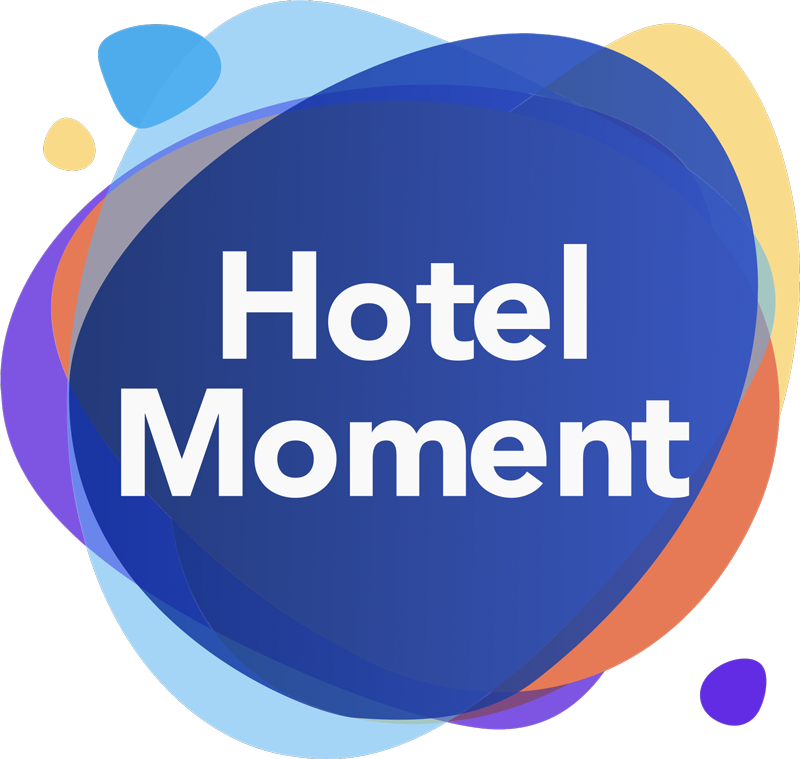

Be the first to know when a new episode drops
This site is protected by reCAPTCHA and the Google Privacy Policy and Terms of Service apply. *Required fields.

